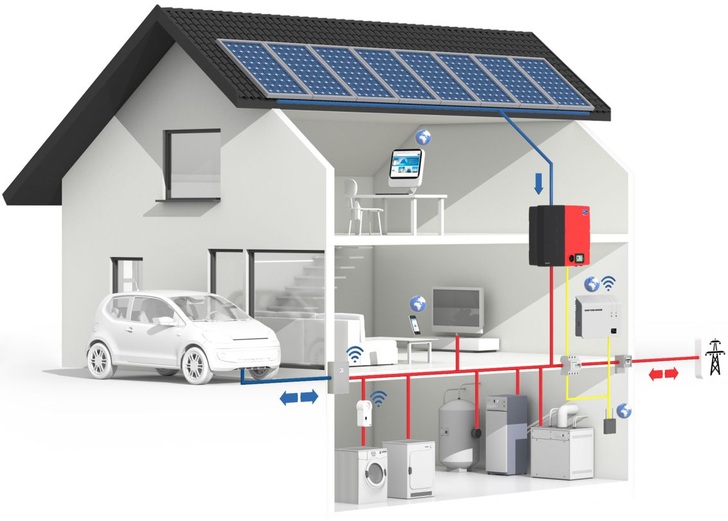
Harnessing the Sun: The Solar-Powered Home Advantage
The Rise of Solar-Powered Homes
In the era of sustainable living, the concept of a solar-powered home has gained significant traction. Harnessing the power of the sun to generate electricity not only contributes to environmental conservation but also provides homeowners with a range of benefits, from cost savings to energy independence.
Reducing Carbon Footprint with Solar Energy
One of the primary advantages of a solar-powered home lies in its ability to reduce carbon footprint. Traditional energy sources, such as coal and natural gas, release harmful greenhouse gases into the atmosphere. Solar energy, being clean and renewable, produces electricity without contributing to air pollution, making it a key player in mitigating climate change.
Cost Savings Through Solar Panels
Investing in solar panels for your home is an effective way to realize long-term cost savings. While the initial installation cost may seem substantial, solar panels pay for themselves over time through reduced energy bills. Homeowners can also take advantage of government incentives and rebates to make the transition to solar power more financially viable.
Energy Independence and Solar Power
A solar-powered home contributes to energy independence by generating its own electricity. This reduces reliance on external power grids, making homes more resilient to power outages and fluctuations. Energy independence not only provides a sense of control but also insulates homeowners from the volatility of energy prices in the market.
Boosting Property Value with Solar
Homes equipped with solar panels often experience an increase in property value. As sustainability becomes a priority for many homebuyers, the appeal of a solar-powered home grows. Potential buyers recognize the long-term benefits of lower energy bills and environmental responsibility, making solar-equipped homes more attractive in the real estate market.
Government Incentives and Support
Governments at various levels actively encourage the adoption of solar energy through incentives and support programs. These initiatives may include tax credits, rebates, and grants aimed at making solar installations more accessible and affordable for homeowners. Staying informed about available incentives is crucial for maximizing the financial benefits of solar power.
Technological Advances in Solar Technology
Ongoing advancements in solar technology contribute to increased efficiency and affordability. Innovations in solar panel design, energy storage solutions, and smart grid integration make solar power more accessible and practical for homeowners. Staying abreast of these technological developments ensures that homeowners can leverage the latest and most efficient solar solutions.
Solar-Powered Homes and Net Metering
Many regions offer net metering programs for solar-powered homes. Net metering allows homeowners to sell excess electricity generated by their solar panels back to the grid. This not only offsets the cost of electricity during times when solar production is low but also contributes to the overall grid stability.
Environmental Stewardship and Home Solar
Choosing a solar-powered home is a conscious decision toward environmental stewardship. By relying on a clean and renewable energy source, homeowners actively participate in reducing the demand for non-renewable resources and decreasing the environmental impact associated with traditional energy production.
Embracing the Future with Solar-Powered Home
In conclusion, a solar-powered home is more than just a residence; it’s a commitment to a sustainable and eco-friendly lifestyle. From reducing carbon footprint to enjoying long-term cost savings, the advantages of solar energy are transformative. To explore the possibilities of transitioning to a solar-powered home, consider reaching out to experts like Solar-Powered Home. Their experienced team can provide guidance on solar installations tailored to your home’s needs, contributing to a greener and more sustainable future.
